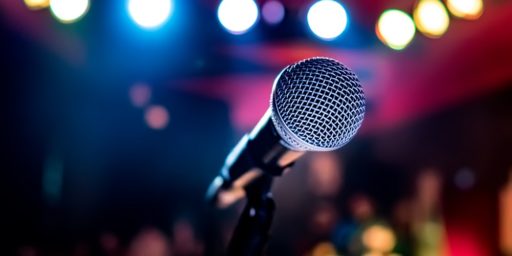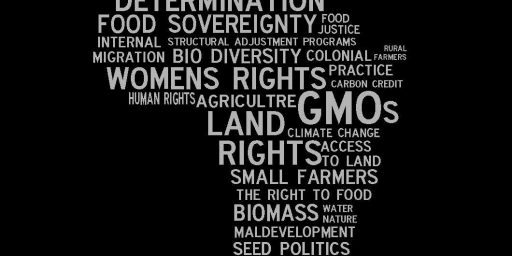Libby Trial: Subtle Distinctions in Guilt or Innocence
David Corn has been in the media room with me covering the Libby trial for the Nation and a book he is writing. While we’re coming at it from rather different ideological perspectives, his assessment of the evidence is fair and his knowledge of the details of the case is encyclopedic. His assessment of the first couple of days of the trial and the legal strategies employed by both sides is quite good.
The main difference between his interpretation of the evidence presented so far and mine is that he attaches names learned post hoc in the present tense. That difference, however, is crucial.
The first witness called to stand by special prosecutor Patrick Fitzgerald was Marc Grossman, who was the No. 3 at the State Department in the summer of 2003. His testimony was clear-cut. On May 29, 2003, he was contacted by Libby, who was seeking information on former Ambassador Joseph Wilson’s trip to Niger. Three weeks earlier, New York Times columnist Nicholas Kristof had written a piece–without mentioning Wilson by name–citing Wilson’s mission as evidence that the Bush administration had hyped the prewar intelligence on Iraq’s weapons of mass destruction.
But the “without mentioning Wilson by name” is critical. Cheney and Libby were concerned that someone was leaking to the press inflammatory charges based on a mission allegedly commissioned by the Office of the Vice President that they knew nothing about. Libby was seeking information about a Niger trip, not about Wilson. A subtle distinction, to be sure, but an important one.
Grossman testified that he had known nothing about the trip, then learned the basic details from others at the State Department, and shared this information with Libby. He also testified that he had asked the State Department’s Bureau of Intelligence and Research to prepare a memo on the trip. The memo noted that Wilson’s wife worked at the CIA division that had dispatched Wilson. Grossman testified that he shared this fact with Libby during a face-to-face meeting on June 11 or June 12, 2003.
He also testified that this is just a reconstructed best guess as to the timeline. He and Libby met at Deputies Committee meetings on a regular basis.
This is important because after the CIA leak criminal investigation was launched, Libby told the FBI and a grand jury that when he heard from Meet the Press host Tim Russert on July 10 or 11 that Valerie Wilson worked at the CIA, he believed he was learning this fact anew. (Russert denies saying anything to Libby about Valerie Wilson.) Fitzgerald’s plan is to demonstrate that Libby aggressively gathered information on Joseph and Valerie Wilson before the leak to prove that his story to the grand jury and the FBI–that he had forgotten he knew anything about Valerie Wilson and had merely passed along to reporters rumors about her he had heard from other reporters–was an intentional lie.
If Libby was pressing Grossman for official information on Wilson and receiving information on Wilson and his wife (which was classified), it means he possessed far more than scuttlebutt. And Grossman was only the first of several witnesses Fitzgerald expected to call to make this point.
Two things: Grossman testified that he passed on the fact that Wilson’s wife had apparently instigated the mission quite casually, simply because it struck him as rather odd. He didn’t pass along her first name, which wasn’t in the report in question. Nor did he mention that it was classified.
What could Wells do? Go after Grossman’s memory. He noted that the written report of his first interview with the FBI–which occurred on October 17, 2003-says that Grossman told the bureau that he conveyed information on the Wilson trip to Libby during two or three telephone calls. Yet now, Wells said, Grossman was testifying that there had been a face-to-face conversation. “I don’t know how to explain this,” Grossman said. Wells continued: An FBI memo regarding Grossman’s second interview with the bureau also said that Grossman had told the FBI he had informed Libby about Wilson’s wife in a phone call. “Again,” Grossman said, “I recall that as a face-to-face meeting.” Wells cited another discrepancy between the FBI reports of Grossman’s interviews and his jury testimony.
It was not devastating. But it was a shot across the bow of Fitzgerald’s case. Part of Libby’s defense is that he did not lie, he merely falsely remembered matters that were not so relevant at the time. If Wells can show the main witnesses against Libby have memory problems of their own, he will be quite pleased.
Quite so. Indeed, Grossman noted that he had “billions of things” on his own plate and that’s why his recollection was so poor. Additionally, he maintains that the issue of “the wife” was pretty tangential until the Novak story hit and the ensuing scandal broke. That’s precisely the defense position.
The difference between a face-to-face meeting and a phone call is rather stark. If Grossman can’t remember which it was–and told the grand jury and trial jury something very different than he told the FBI–then it’s quite possible that his “reconstruction” of the facts is off.
And I would argue that this is as much “perjury” as saying one heard a name first from a reporter when one had previously heard it elsewhere. Clearly, though, Grossman is doing his best to be honest in his testimony.
By Fitzgerald’s count, there were now two former government officials [Grossman and Robert Grenier, a former Iraq mission manager at the CIA] who maintained they had told Libby about Wilson’s wife in response to questions from Libby. Then Bill Jeffers got hold of Grenier. On the cross-examination, he dug into a problem with Grenier’s testimony. Grenier had conceded that when he first talked to FBI agents investigating the leak and when he first appeared before the grand jury he had said that he did not recall having told Libby about Wilson’s wife. He explained that he had recalled that he had done so only after thinking about the matter in response to stories in the media about the leak case. “I was going over it again and again in mind,” he testified. Then in the spring of 2005–more than a year after his initial grand jury appearance–he spoke to CIA lawyers and arranged to reappear before the grand jury to say he now realized he had spoken to Libby about Wilson’s wife.
Grenier’s testimony was simply laughable. Basically, after nearly two years of reading stories about it in the press, he retroactively felt guilty that he might have mentioned that Mrs. Wilson worked at the CIA and ultimately this guilt became a reconstructed memory that he must have told Libby. This guilt, mind you, despite not even knowing Wilson’s CIA status as a possibly covert agent. That ain’t evidence.
Next up was Craig Schmall, who in 2003 was a CIA briefer for both Libby and Cheney. He testified that during his June 14, 2003 morning briefing of Libby, the vice president’s chief of staff had raised a few matters that were not part of the official briefing. One was a visit Libby had just had with actors Tom Cruise and Penelope Cruz. “He was a little excited about it,” Schmall said, explaining that Cruise had come to talk to Libby about Germany’s treatment of Scientologists. (Cruise had met with Richard Armitage, the deputy secretary of state on June 13.) Another issue was the Wilson mission and Valerie Wilson. Schmall’s handwritten notes on the table of contents of Libby’s briefing that day indicated that Libby had mentioned both Wilsons to him. Here was more evidence suggesting that Libby was on top of the Wilson business (before it became public) and knew about Valerie Wilson.
[…]
There was not much Libby attorney John Cline could do to challenge Schmall. The CIA briefer had admitted that he had a “poor memory” of the specific briefings. But his notes said what they said. So Cline mainly asked Schmall about the other subjects on Libby’s plate during those briefings: bombings overseas, an arrest of a suspected terrorist, a proposed Middle East security plan, assorted possible terrorist attacks against the United States. This will be useful ammo if Libby’s lawyers later claim he was too damn busy with protecting America to have recalled accurately what he knew about Valerie Wilson. Yet he wasn’t too preoccupied to talk to Cruise about Scientology.
The entirety of the annotation on the page: “The Amb told this was a VP office question? Joe Wilson Valerie Wilson.” Schmall has zero independent recollection of the conversation.
By contrast, he has vivid memories of the Tom Cruise conversation. Rather clearly, both he and Libby were much more prone to remember the truly unusual than one of hundreds of tidbits about national security matters they heard every week. Indeed, Schmall could not remember the substance of any of the 27 important items on the table of contents with the Wilson annotation.
Corn and I both come to this with more knowledge than the jurors and, if they were honest in their answers during voir dire, much stronger opinions about the politics. Still, if Libby gets a fair hearing, it’s going to be hard not to have reasonable doubt as to whether he intentionally lied to the grand jury or he simply didn’t remember. After all, none of the prosecution witnesses so far has any non-reconstructed memory of the events.




nice try, joyner, but you seem to be missing the point here.
1) Fitz is not that concerned with whether or not Grossman and Grenier mentioned “the wife”. What he is doing is establishing that the Wilson trip was an extremely important matter to Libby.
2) Schmall testimony establishes a number of things—despite the expected defense efforts to portray Libby as so completely focussed on critical National Security issues, on a day when a whole pile of supposedly critical national security isses, on June 14 Libby was most concerned about his meeting with Tom Cruise, a press report that said that CIA personnel were feeling pressured by administration officials, and (most critically) Joe and Valerie Wilson mentioned by name
Cline’s cross-examination that included the laundry list of topics also discussed that day — intended (apparently) to demonstrate how people can forget really important stuff — backfired on Libby, because Schmall was NOT “tasked” to find out more about any of those crucial issues. Instead, Schmall’s notes make it clear that Libby was concerned with “trivial” matters, and matters concerning the public perception of the administration and its case for war.
I disagree. You seem to think Libby is charges with having a bad memory. He is not. He is charged with making up a story and telling that story to the FBI and the Grand Jury. When his story was shown to be false … then he trotted out the ‘I forgot’ defense.
It is indeed fortunate for Libby that Paul Lukasiak did not make it onto the jury pool.
I suspect, though, that his firm inclination to convict would have gotten him stricken somewhere along the line.
I suspect, though, that his firm inclination to convict would have gotten him stricken somewhere along the line.
….about six seconds into voir dire, if that long 🙂
You got that right, Paul;>)